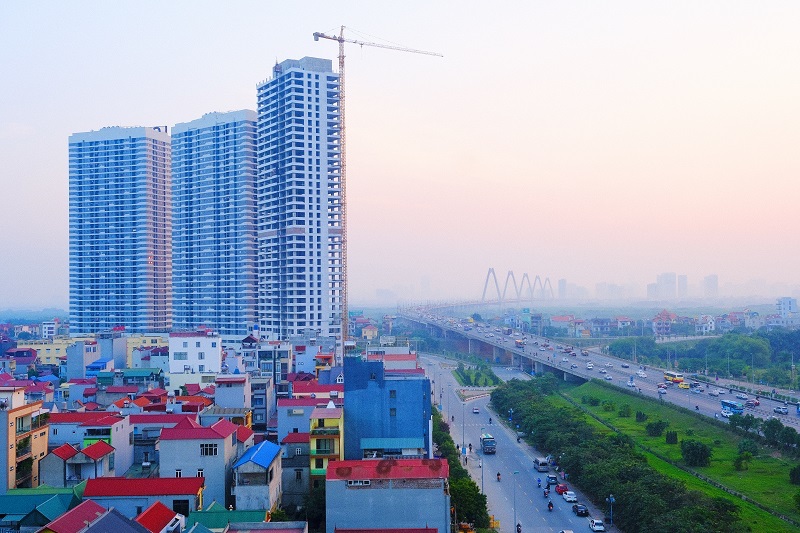iForum for Smart City to foster smart city development in Vietnam
The launch of the new alliance for the development of smart cities takes place on November 10.
The establishment of the Alliance of Public-Private Partnerships for Smart City Development (iForum for Smart City) is expected to encourage more participation of the private sector in the formation and development of smart cities in Vietnam.
| Hanoi is home to some leading smart city projects. HNT Photo: Pham Hung |
The alliance will connect corporations, businesses, policymakers, leaders, urban developers at home and abroad to exchange initiatives and resources between the public and private sectors in realizing the goal of developing a smart urban system in Vietnam and in the region.
The launching ceremony of the alliance was held within the framework of the 3rd conference themed “Developing smart cities in the process of urbanization associated with industrialization, modernization to 2030, with a vision to 2045” in Hanoi.
Speaking at the event, Dr. Nguyen Thanh Phong, Member of the Party Central Committee and Deputy Head of the Party Central Committee's Economic Commission, emphasized that smart city development has received great attention from the Party and Government.
So far, the country had 41 out of 63 provinces and cities which are developing smart urban projects.
“However, the implementation of smart city development still faces obstacles, including the local authorities’ low awareness of smart cities, the poor provision of smart solutions from businesses and investors, or the low demand for such the services,” he added. “Especially, the participation of the community and economic sectors is still limited.”
He added standards and regulations on smart urban planning, technical infrastructure, and architectural works, have not been perfected and coherent. The deployment of smart cities is still fragmented. Meanwhile, existing smart cities are not specific.
Echoing Thanh Phong, Le Quang Hung, Vice Minister of Construction said Vietnam is still confused about where to start and how to build a smart city. Inadequacies of existing cities are preventing the development of the smart city.
According to Hung, the ministry is developing criteria for smart cities suitable to Vietnam's conditions. The country will apply the strategy of building smart urban areas and then replicate the model in entire cities and provinces.
Phong emphasized smart city development is not only the responsibility of the localities but also of many other stakeholders. “Vietnam needs to identify the role of smart urban development planning and smart system management as the foundation for the process of the socio-economic development,” he said.
The role of technology in smart city development is indispensable but it is necessary to recognize that technology only plays a supporting role, not a decisive factor. Each city needs to have its own smart city vision, and urban development requires a strong commitment from the community and the people to participate, Phong noted.
At the event, many local and foreign experts and scientists gave recommendations that will help build the master plan“Industrialization and modernization guidelines and policies by 2030, with a vision to 2045” which will be submitted to the Party’s Central Committee next year.
Hanoi has developed a strategy and roadmap to build a smart city by 2025 with the goal of building e-government. In the latest move, it has rolled out a public service portal to provide online services to use online registration for newly-established enterprises at the rate of 100%, e-customs at the rate of 100%, electronic tax declaration, and social insurance at the rate of over 98%. In regard to urban transport, Hanoi has built and put into operations the Centre for Urban Traffic Management and Operation for many years now. The city has also deployed an itinerary management application on more than 100 bus routes. Meanwhile, it is currently finalizing its smart transport scheme, concentrating on digitizing infrastructure and transport, building software and applications for traffic management, and handling violations automatically. In the field of natural resources and the environment, Hanoi has been carrying out environmental monitoring on air quality, water quality, rainfall, flooded area maps. The city is also putting in place investment processes to build a general database system database for its land management. |










